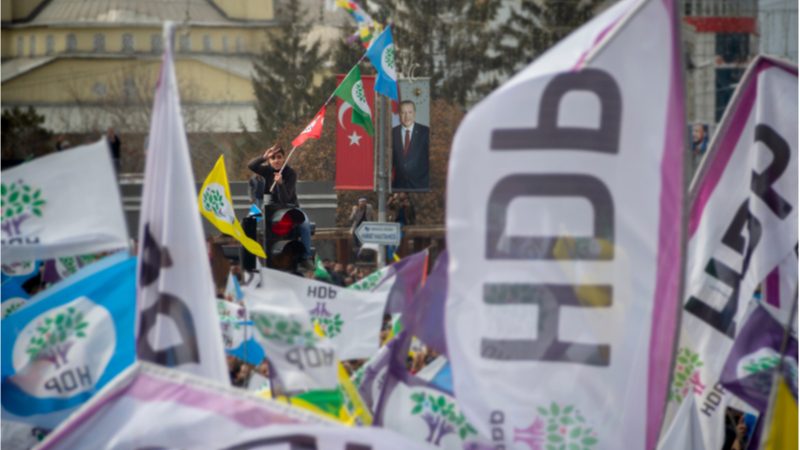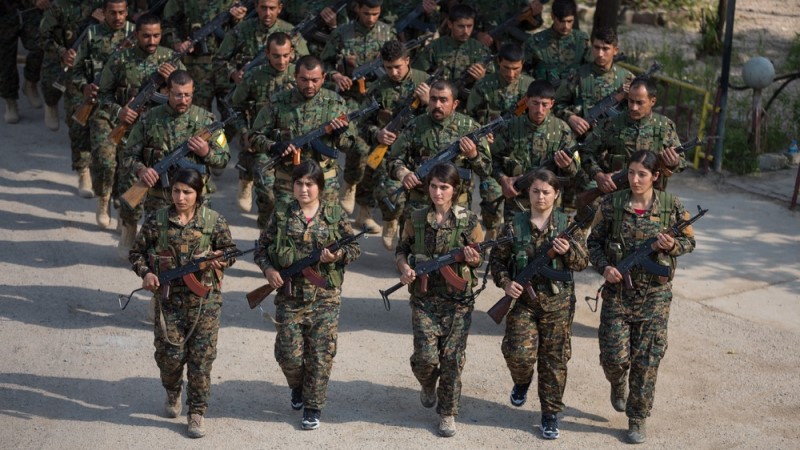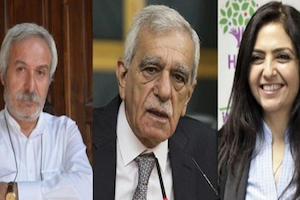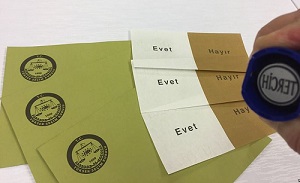Closing Down Democracy – The Prosecution of the HDP
By Sarah Glynn
March 10, 2022
Despite the Turkish government’s current efforts to portray itself as a peacemaker who cannot countenance unprovoked aggression, its assault on the Kurds continues both within and beyond Turkey’s borders. Turkish democracy, always a sickly creature, is undergoing a judicial asphyxiation. Tens of thousands of opposition figures are in prison, including thousands of members of the third largest party in the Turkish Parliament, the pro-Kurdish, leftist Peoples’ Democratic Party (HDP). Two ongoing court cases could see leading party members jailed for life, and the enforced closure of the party. These cases commit the state even further to violent suppression of Kurdish hopes rather than a political solution.

Is There Any Solution to Turkey’s Kurdish Problem?
By Halil Karaveli
September 29, 2021
While a solution to the Kurdish problem will likely continue to remain out of reach, Turkey has no alternative but to muddle through, alternating between cautious reform and clampdown. Turkey can only hope that regional developments, and in particular American policies in its neighborhood, will not contribute to bringing things to a calamitous head between Turks and Kurds. The recent decision of the United States to allocate $170 million to the Kurdish militia in Rojava will certainly not alter the perception in Ankara that it faces an American-Kurdish threat against which it must remain vigilant.

Kurdish Mayoral Dismissals: Narrowing Political Spaces, Widening the Distance from Ankara
By Gareth H. Jenkins
September 4, 2019
The removal of the democratically elected mayors of three municipalities in the predominantly Kurdish southeast of the country and their replacement with government appointees has dealt yet another blow to Turkey’s already tattered democratic credentials. Although it is unlikely to lead to an imminent sustained increase in violence or civil unrest, by further excluding Kurds from political processes the government is exacerbating the already growing belief in the southeast that their future lies in some form of detachment from Ankara.

Turkey’s Constitutional Referendum and Erdogan’s Faded Democratic Credentials
by Gareth H. Jenkins
June 1, 2017
The Turkish constitutional referendum of April 16, 2017 dealt yet another blow to President Tayyip Erdoğan’s already faltering claim to democratic legitimacy. Not only did both the referendum and campaign that preceded it fall short of democratic norms but the Turkish authorities’ refusal to investigate the numerous reports of fraud and apparent irregularities suggests that the regime no longer feels the need to maintain even the semblance of the rule of law.

The “Logic” of Turkey’s Repression
By Halil Karaveli
November 10, 2016,
What is the logic behind the arrests of Kurdish politicians and of liberal and leftist journalists in Turkey? From the perspective of the Turkish regime, in the wake of the coup attempt it is imperative to restore the authority of the state, and to undo the political gains of the Kurdish movement. President Recep Tayyip Erdoğan is seconded by the leader of the far right, Devlet Bahçeli. The new “Nationalist front” that their parties have formed speaks to the sensibilities of the vast majority of Turks. However, what is being mobilized is a destructive national unity, attained at the expense of liberty. Ultimately, it may not serve the cause of a united Turkey.





